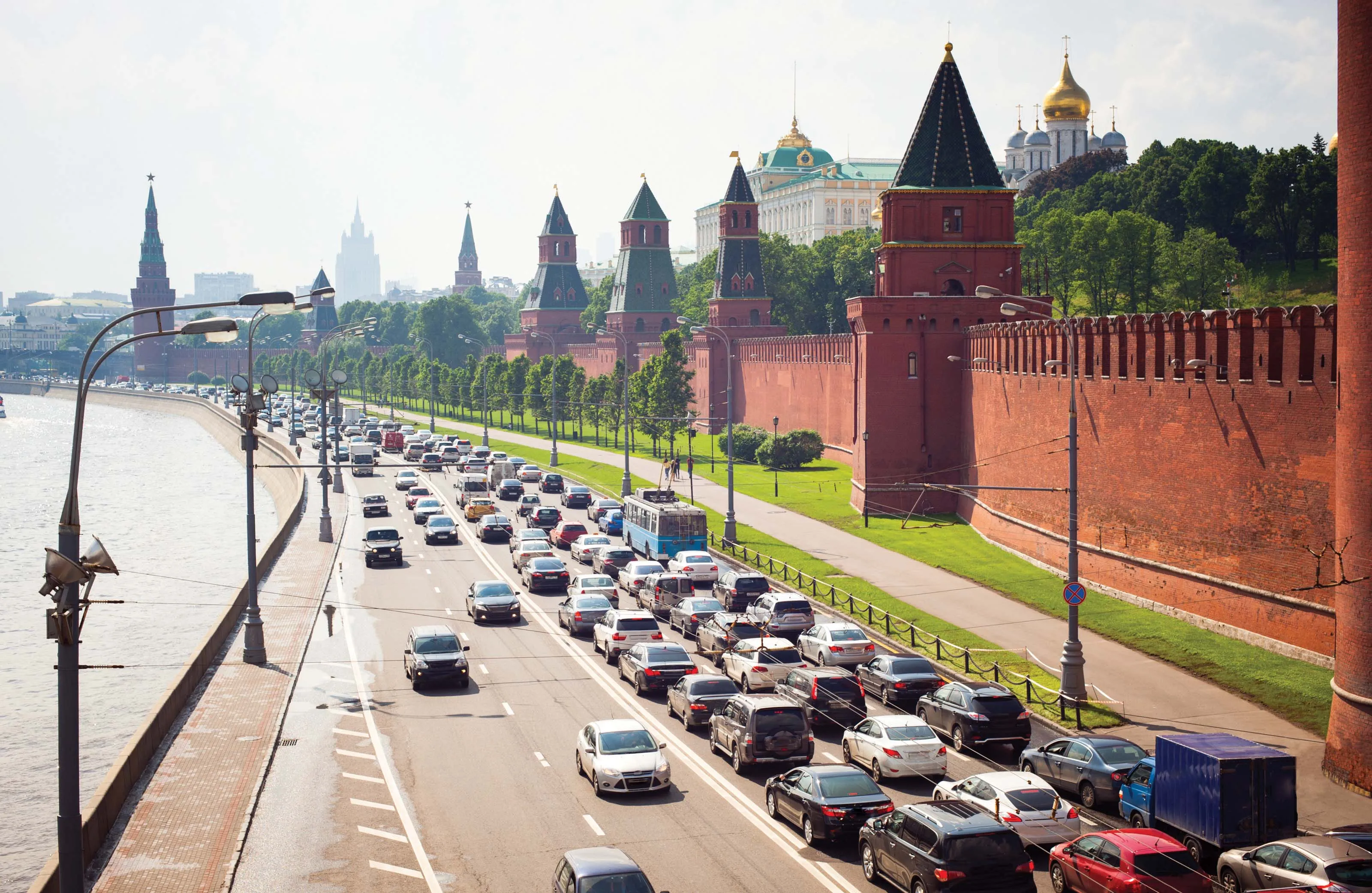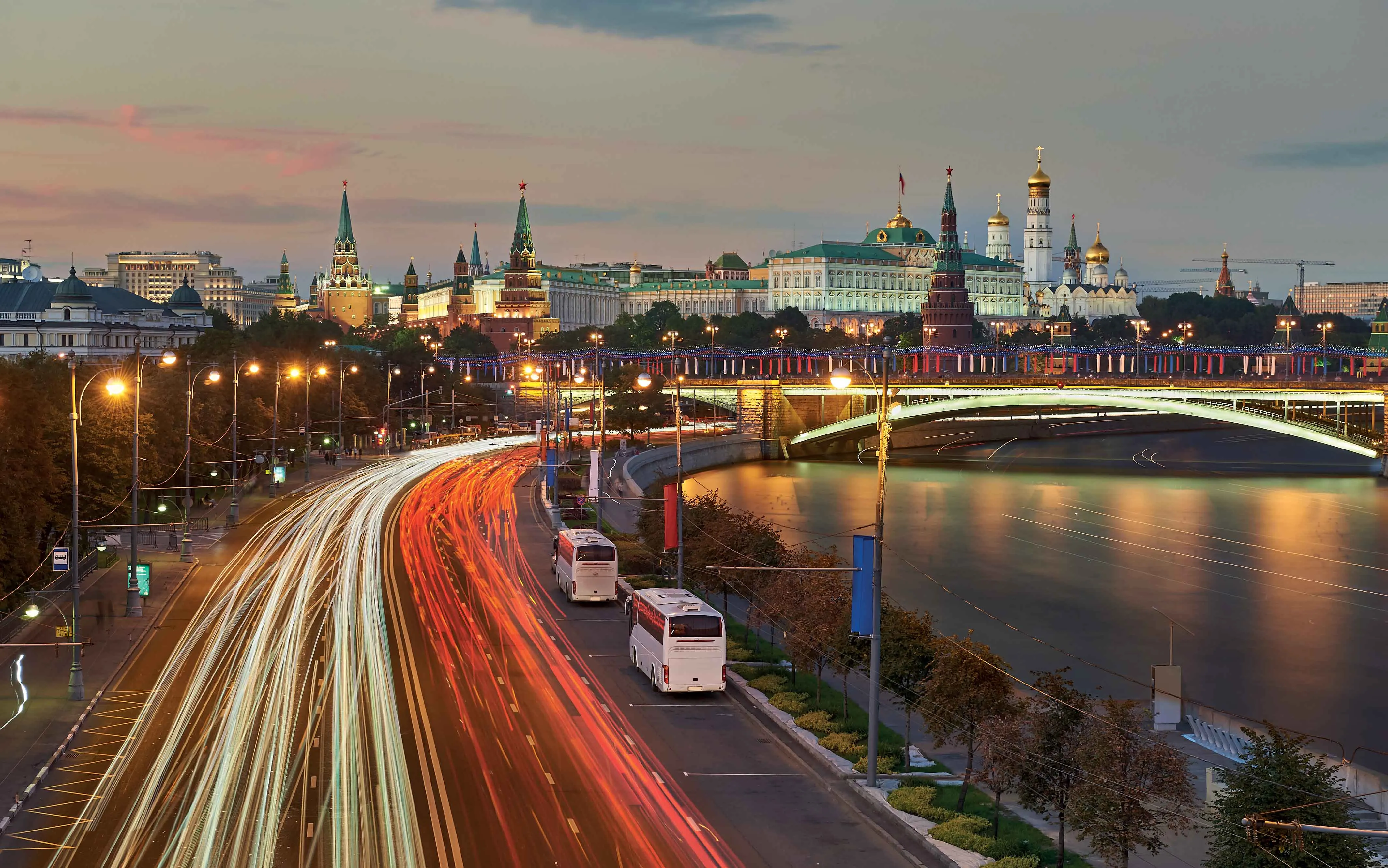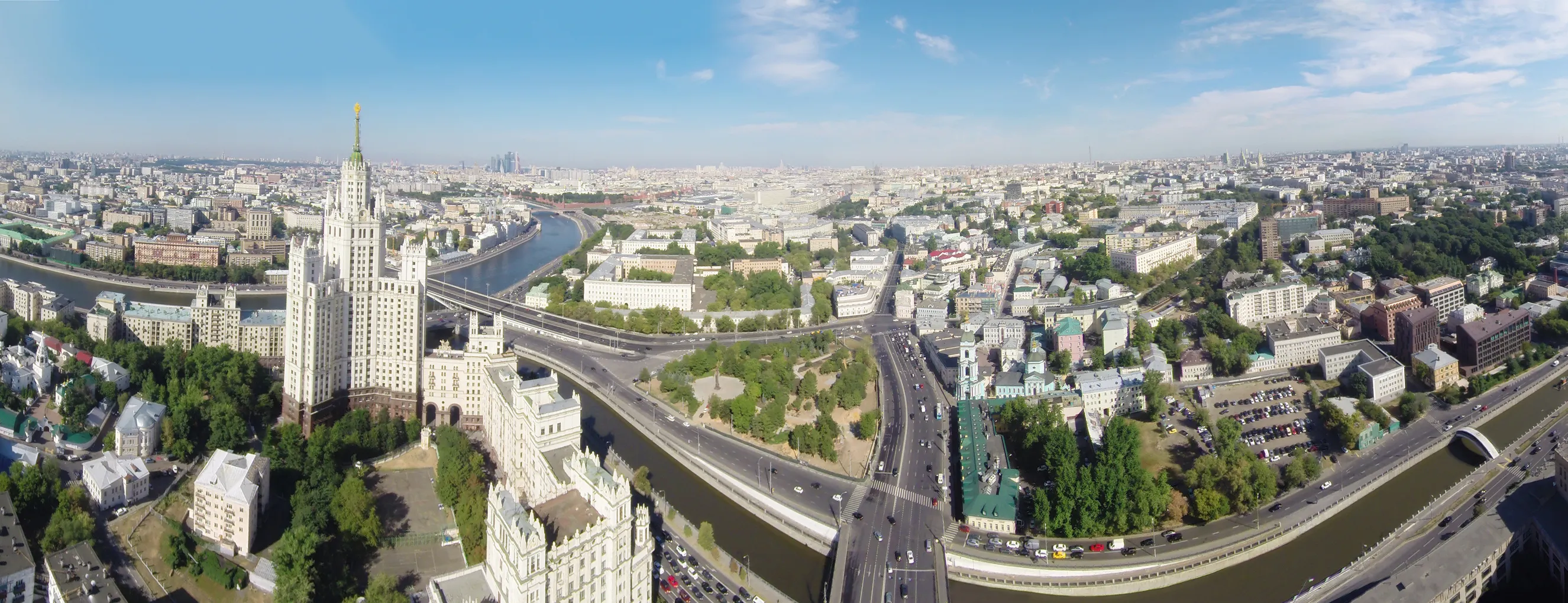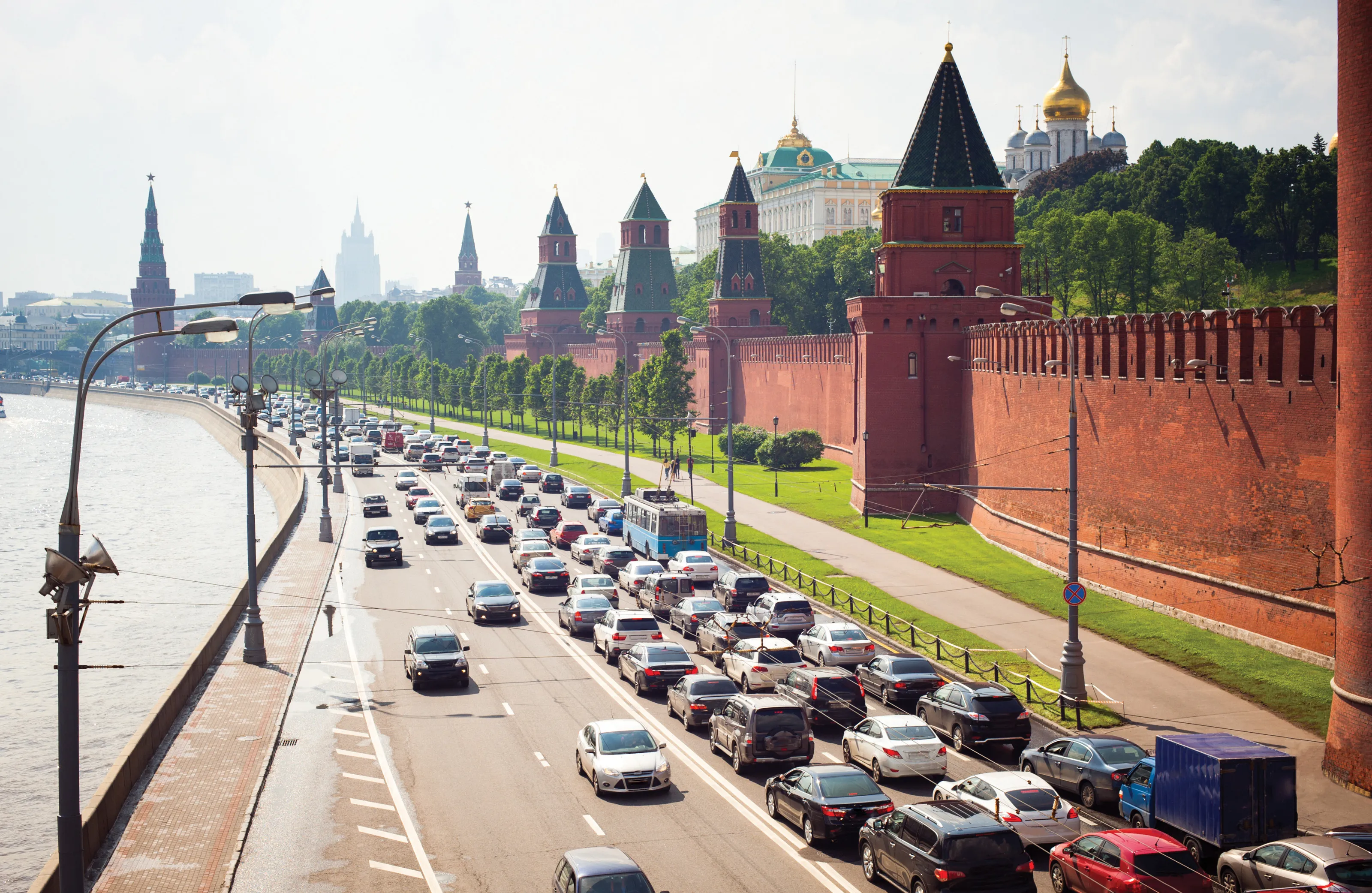Moscow’s ring road is due for rebuilding – Eugene Gerden writes. The Moscow city authorities have finalised the project of the reconstruction of the Moscow Ring Road. The ring road encircles the City of Moscow and the plan was announced by Marat Khusnullin, deputy mayor of the city. Khusnullin said that, to date, the Moscow city government has completed 90% of the design documentation of the project.
October 15, 2015
Read time: 5 mins
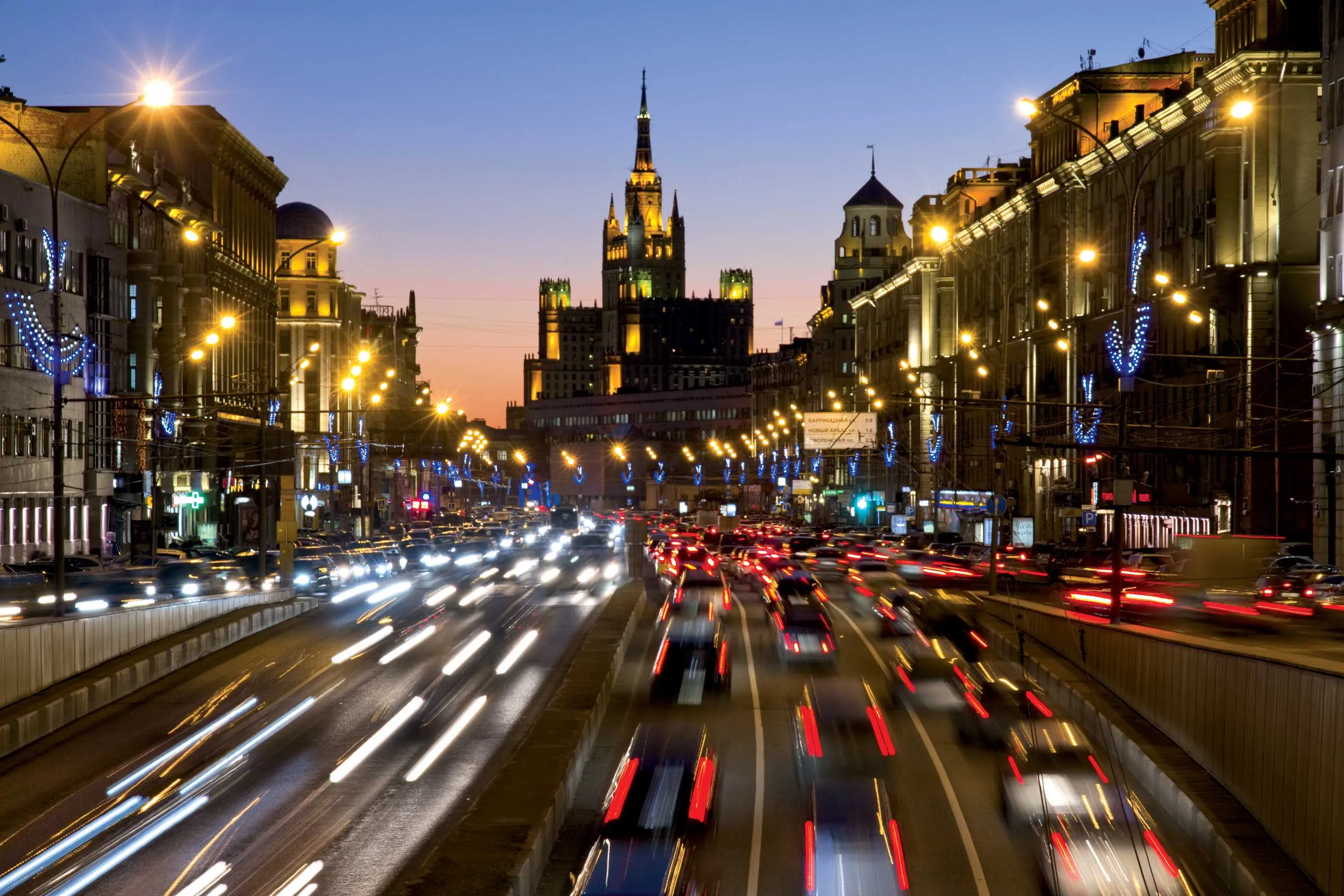
Moscow’s ring road is due for rebuilding – Eugene Gerden writes
The Moscow city authorities have finalised the project of the reconstruction of the Moscow Ring Road. The ring road encircles the City of Moscow and the plan was announced by Marat Khusnullin, deputy mayor of the city.
Khusnullin said that, to date, the Moscow city government has completed 90% of the design documentation of the project.
The initiative for the reconstruction and modernisation of the Ring Road was for the first time put forward by Sergei Sobyanin, the current Moscow Mayor, in 2010. However since that time, implementation of the project was suspended and resumed only at the beginning of 2015.
Under the terms of the project the Ring Road will be divided into several parts, reconstruction of each of which will involve participation of contractors that will be selected as a result of state tenders during the period of 2015-2016.
It is planned that at the initial stage reconstruction will mainly affect the road’s sections between the Leninsky Prospekt. This major avenue in Moscow runs in the south-western direction in the central part of the city. It also includes the Mozhayskoe Highway. This plan is mainly due to the recent establishment of New Moscow district of the city and the development of Skolkovo, a planned high technology business area being built at Skolkovo (Moscow region).
The first stage of the project involves reconstruction and modernisation of outdated cloverleaf crossings of the Road with outbound routes, as well as crossings.
According to Khusnullin, reconstruction of nine crossings has been completed so far, while reconstruction of thre e others will be completed by the end of the current year.
It is also planned that particular attention will be paid for the reconstruction of the road’s junctions with outbound routes, as well as building of new slip lanes.
According to analysts of the Moscow city government, clover junctions of the road that were built during the 1990s do not provide sufficient capacity and just deteriorate the transport situation. The existing scheme creates a conflict between drivers entering and exiting the road, forcing them to significantly reduce their speed.
Due to this, the Moscow city government has decided to use a scheme of direct crossovers, which should help to solve this problem, despite the fact that building of new junctions will be associated with higher costs. In addition, as part of the project there are plans for building additional junctions for U-turns.
Khusnullin commented, “Our first goal is to relieve congestion on the Moscow Ring Road, while the second is to develop the area around the Moscow city, as well as to build new blocks of residential and business real estate. Reconstruction of the road will result in a significant decline of traffic to the Moscow downtown from the suburbs of the city, which has significantly increased in recent years.”
In the meantime, the second stage of the project involves reconstruction of the 106km road itself, as well as building of about 100km of new slip lanes, as well as 200km of various relief roads, service roads and crossover roads.
According to plans of the Moscow city government, of the 200km of planned for the building new roads, about 20km will be built by private investors.
Russian analysts in the field of road traffic and roads have already welcomed implementation of the project. Peter Shkumatov is head of the Russian Society of Blue Buckets, (a free protest movement that emerged in Russia as a response to the arbitrary, self-serving use of emergency rotating blue flashers by public officials). He said that in recent years the Moscow Ring Road has turned from a transit road (as initially planned during its building) into an urban highway with high levels of congestion.
Shkumatov believes that such a situation became mainly due to the result of wrong decisions, taken by the previous authorities of Moscow and the Moscow region, which granted permissions for the construction of large shopping centres and other infrastructure along the road without building good crossover roads and turnoffs.
Shkumatov has denied statements of some analysts that reconstruction of the Moscow Ring Road will result in huge traffic jams in the Moscow city and the Moscow region. At the same time the Moscow city government has no plans to build a full-scale relief road to the Moscow Ring Road in the near future, as this will be associated with enormous costs for the city’s budget.
It is planned that after the completion of reconstruction the speed limit on the Ring Road will be increased to 130km/h, compared to the current 100km/h.
Total volume of investments in the project are estimated at 100 billion rubles (US$2.45 billion). The majority of funds for the project will be allocated from the Moscow city budget, while the rest will be provided by private investors.
Implementation of the project is complicated by dense development and a large number of shopping centres built along the Ring Road. However, according to an official spokesman of the Moscow city government, some shopping centres that were built along the road without proper authorisation will be demolished.
Implementation of the project is scheduled for 2020-2022. Its successful completion should contribute to a significant increase of the territory of Moscow and the Moscow region. So far, the Moscow city government has signed an agreement with several private investors, and in particular IKEA, on the building of a pedestrian overpass and reversal trestle on one of the sections of the road.
In addition, private investors are expected to provide funds for the building of several relief roads of the Ring Road close to Profsoyznaya Street, a street in the south-western part of Moscow.
Construction of the first four-lane Moscow Ring Road was completed in 1962. In the mid-1990s, the road was widened up to 10 lanes.
The Moscow city authorities have finalised the project of the reconstruction of the Moscow Ring Road. The ring road encircles the City of Moscow and the plan was announced by Marat Khusnullin, deputy mayor of the city.
Khusnullin said that, to date, the Moscow city government has completed 90% of the design documentation of the project.
The initiative for the reconstruction and modernisation of the Ring Road was for the first time put forward by Sergei Sobyanin, the current Moscow Mayor, in 2010. However since that time, implementation of the project was suspended and resumed only at the beginning of 2015.
Under the terms of the project the Ring Road will be divided into several parts, reconstruction of each of which will involve participation of contractors that will be selected as a result of state tenders during the period of 2015-2016.
It is planned that at the initial stage reconstruction will mainly affect the road’s sections between the Leninsky Prospekt. This major avenue in Moscow runs in the south-western direction in the central part of the city. It also includes the Mozhayskoe Highway. This plan is mainly due to the recent establishment of New Moscow district of the city and the development of Skolkovo, a planned high technology business area being built at Skolkovo (Moscow region).
The first stage of the project involves reconstruction and modernisation of outdated cloverleaf crossings of the Road with outbound routes, as well as crossings.
According to Khusnullin, reconstruction of nine crossings has been completed so far, while reconstruction of thre e others will be completed by the end of the current year.
It is also planned that particular attention will be paid for the reconstruction of the road’s junctions with outbound routes, as well as building of new slip lanes.
According to analysts of the Moscow city government, clover junctions of the road that were built during the 1990s do not provide sufficient capacity and just deteriorate the transport situation. The existing scheme creates a conflict between drivers entering and exiting the road, forcing them to significantly reduce their speed.
Due to this, the Moscow city government has decided to use a scheme of direct crossovers, which should help to solve this problem, despite the fact that building of new junctions will be associated with higher costs. In addition, as part of the project there are plans for building additional junctions for U-turns.
Khusnullin commented, “Our first goal is to relieve congestion on the Moscow Ring Road, while the second is to develop the area around the Moscow city, as well as to build new blocks of residential and business real estate. Reconstruction of the road will result in a significant decline of traffic to the Moscow downtown from the suburbs of the city, which has significantly increased in recent years.”
In the meantime, the second stage of the project involves reconstruction of the 106km road itself, as well as building of about 100km of new slip lanes, as well as 200km of various relief roads, service roads and crossover roads.
According to plans of the Moscow city government, of the 200km of planned for the building new roads, about 20km will be built by private investors.
Russian analysts in the field of road traffic and roads have already welcomed implementation of the project. Peter Shkumatov is head of the Russian Society of Blue Buckets, (a free protest movement that emerged in Russia as a response to the arbitrary, self-serving use of emergency rotating blue flashers by public officials). He said that in recent years the Moscow Ring Road has turned from a transit road (as initially planned during its building) into an urban highway with high levels of congestion.
Shkumatov believes that such a situation became mainly due to the result of wrong decisions, taken by the previous authorities of Moscow and the Moscow region, which granted permissions for the construction of large shopping centres and other infrastructure along the road without building good crossover roads and turnoffs.
Shkumatov has denied statements of some analysts that reconstruction of the Moscow Ring Road will result in huge traffic jams in the Moscow city and the Moscow region. At the same time the Moscow city government has no plans to build a full-scale relief road to the Moscow Ring Road in the near future, as this will be associated with enormous costs for the city’s budget.
It is planned that after the completion of reconstruction the speed limit on the Ring Road will be increased to 130km/h, compared to the current 100km/h.
Total volume of investments in the project are estimated at 100 billion rubles (US$2.45 billion). The majority of funds for the project will be allocated from the Moscow city budget, while the rest will be provided by private investors.
Implementation of the project is complicated by dense development and a large number of shopping centres built along the Ring Road. However, according to an official spokesman of the Moscow city government, some shopping centres that were built along the road without proper authorisation will be demolished.
Implementation of the project is scheduled for 2020-2022. Its successful completion should contribute to a significant increase of the territory of Moscow and the Moscow region. So far, the Moscow city government has signed an agreement with several private investors, and in particular IKEA, on the building of a pedestrian overpass and reversal trestle on one of the sections of the road.
In addition, private investors are expected to provide funds for the building of several relief roads of the Ring Road close to Profsoyznaya Street, a street in the south-western part of Moscow.
Construction of the first four-lane Moscow Ring Road was completed in 1962. In the mid-1990s, the road was widened up to 10 lanes.


